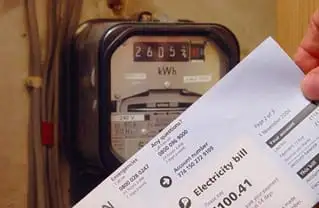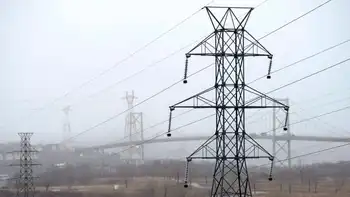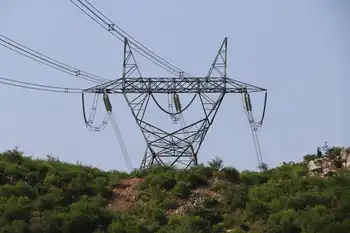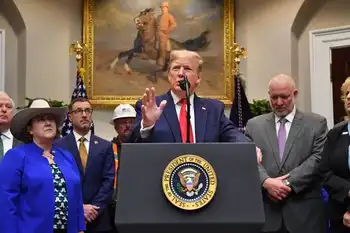Home heating system cuts power bills
Freewatt.
It's a new residential heating system that produces electricity as it warms your home.
Feo's company, Ameri-Tec Mechanical, was recently named exclusive distributor for Freewatt in Lancaster, York, Dauphin, Lebanon, Berks and Chester counties.
Feo was talking up the design last month at Alden Place, a 100-home retirement community in Cornwall.
The Freewatt vendor, ECR International, Utica, N.Y., had dispatched a show-and-tell van to the site.
James Graybill, the general manager for the property, said he expects some 300 more homes to be constructed at Alden Place.
Buyers will be offered Freewatt options from here on out, he said.
"Alden wants to be part of this," Graybill added.
The spring sun beamed strongly outside the development's office. Optimism flowed.
"This is going to be one of the hottest pieces of equipment out there," predicted Feo, Ameri-Tec's president and CEO.
And not just because Freewatt hybrid technology promises to reduce dependence on the grid and slash electric bills.
Freewatt, based on a single-cylinder, internal-combustion Honda engine powered by natural gas or propane, also has the potential to shrink the nation's carbon footprint, Feo said.
Such home cogeneration systems are about 90 percent efficient, promoters say.
Centralized power plants typically operate at 35 percent efficiency, according to science writer W.G. Ernst and other sources.
ECR Freewatt units, developed in conjunction with Climate Energy, already heat tens of thousands of Japanese homes, Feo said.
ECR distributors report having sold about 200 Freewatt systems in New England and New York since 2007 and several hundred units in Canada.
Now, Feo said, it's Pennsylvania's turn.
"We watched [the technology] evolve" and then pursued the market aggressively, he added. "This thing's going to take off."
At Alden Place, the future sat parked in a white Ford van.
ECR host Bob Welch walked visitors through the display and explained how the computerized Freewatt furnace harvests heat from the converter, engine manifold and crankcase.
The smoothly ticking Honda engine was pumping out 1.2 kilowatts, Welch said. That's a little more juice than needed to power an average home — and keep four floodlights glowing brilliantly outside the van.
Every year or year and a half — 6,000 operation hours — someone must change the oil and spark plugs.
Ear plugs aren't needed.
The engine clocks in at 47 decibels, Welch said, similar to a hush-hush refrigerator.
According to the Environmental Protection Agency, home cogeneration combines an engine or fuel cell with a high-efficiency forced air furnace, boiler or hot water heater.
A good system can tamp down the carbon dioxide emissions of a typical cold-climate home by 20 to 25 percent, the EPA says.
That's roughly equivalent to the energy burned in a year of driving, said Bill Dahlin, ECR's director of sales in the United States.
Relatively speaking, he said, "Each house this goes in, a car comes off the road."
Freewatt isn't perfect for all homes or budgets, of course.
Averaging $12,000 for a retrofit and up to $25,000 for a new installation, Feo said, Freewatt is competitive with the geothermal systems Ameri-Tec also sells.
And, of course, it's the new kid on the block.
Marie Coleman, a spokeswoman for the U.S. Green Building Council in Washington, D.C., said none of the council officials she checked with were familiar with Freewatt.
Still, such systems, heretofore associated mainly with large commercial applications, appear to be making the transition to the home cellar.
Senators Charles E. Schumer and Kirsten Gillibrand introduced a bill last month to create a tax credit for homeowners and businesses that install small combined heat and power ("micro-CHP") systems.
The technology was endorsed in 2008 by the EPA's new Climate Choice Program, which advances emerging green technologies.
The agency Web site points prospective buyers to ECR and Marathon Engine in Wisconsin, the only two U.S. vendors.
Homeowners in this region typically log 3,000 to 4,000 heating hours a year, Dahlin said. That's enough time for the Honda engine to generate half your electricity.
And the savings promise to increase as electric utility rate caps expire over the next few years, Freewatt backers say.
All of which is good enough for Feo's mother.
She is 65, lives on a fixed income in York County and loves her new system, according to Feo.
The local Freewatt target market is 55 and up, he added, but the concept fits all demographics.
And it's custom made for Feo's 4-year-old green-focused heating, ventilation and air conditioning company, he said.
Ameri-Tec, a burgeoning organization that employs 30 and made $3.6 million last year, according to Feo, also sells solar power and solar hot water heating systems.
Not everyone likes photovoltaic panels on the roof, Feo said.
But most people want to save on energy, he added. A growing number want off the grid, which is going to be "a huge part of the market."
ECR is on it.
The company plans to roll out Freewatt Plus in the first quarter of 2010, said Wes Congleton, the Coatesville-based ECR regional sales manager for the mid-Atlantic.
Freewatt Plus will be powered by natural gas or liquefied petroleum (LP) gas, Congleton said.
Unlike the standard Freewatt system, which shuts off when the power goes out, he added, Freewatt Plus will serve as a backup generator to run essential machinery, such as refrigerators and well pumps.
"Any time the grid goes down, [this] goes on for you."
Related News

Alberta sets new electricity usage record during deep freeze
CALGARY - Albertans are cranking up their thermostats and blasting heat into their homes at overwhelmingly high rates as the deep freeze continues.
It’s so cold that the province set a new all-time record Tuesday evening for electricity usage.
According to the Alberta Electric System Operator (AESO), 11,729 MW of power was used around 7 p.m. Tuesday, passing the previous record set in January of last year by 31 MW.
Temperatures reached a low of -29 C in Calgary on Tuesday while Edmonton saw a low of -30 C, according to Environment Canada. Wind chill made it feel closer to -40.
“That increase —…





